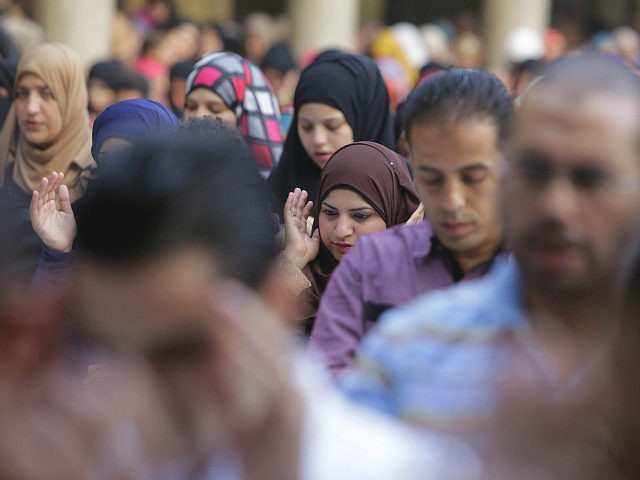A new United Nations survey of male attitudes toward “gender equality” finds precious little appetite for it across the Middle East.
“Male attitudes towards the role of women in the workplace and at home, and of their participation in public life, were stereotypically sexist in the study of views in Egypt, Lebanon, Morocco and Palestine,” writes the UK Guardian in summarizing the report.
Egypt scored the lowest on the report’s “Gender Equitable Men” scale and is the source of the most striking headlines. For example, CNS News reports that “70 percent of Egyptian men approve of female genital mutilation.” For that matter, 56 percent of Egyptian women also voiced approval for the hideous procedure, which is illegal but not unheard-of, in much of the world.
Egyptian men also supplied 90 percent agreement with the statement that “a man should have the final word about decisions in the home,” and 58.5 percent of Egyptian women agreed. Only 31 percent of Egyptian men thought married women have the same rights to work outside their homes as men. 93 percent of men thought a husband should “know where his wife is at all times.” 96 percent thought a wife should agree to sex whenever her husband desires it.
53.4 percent said “there are times when a woman deserves to be beaten.” 90 percent agreed that “a woman should tolerate violence to keep the family together.” Roughly 45 percent of Egyptian men said they had been violent to their wives.
Only 25.7 percent of male Egyptian respondents said that women should “have the same freedom to access sites on the Internet as men.”
Egyptian women were significantly more supportive of women’s rights on most of these questions, although one point of agreement concerned women at work. While women were over twice as likely as men to say that women should have the right to work, they largely agreed that it was more important for men to work when jobs were scarce and that marriage was more important for women than a career.
Inability to find work was a major source of shame, anxiety, and depression for men.
The survey noted that younger men and women, especially younger women, were more likely to support gender equality. Of the regions surveyed, Egypt scored lowest on the Gender Equitable Men scale, while Lebanon scored the highest.
Morocco produced some alarming results about sexual harassment, with over half of men saying they have sexually harassed a woman, and over 60 percent of women reporting they have been harassed. A higher percentage of female Moroccans (78 percent) agreed that provocatively dressed women deserve harassment than men (72 percent).
The survey, which was conducted by UN Women and a non-profit organization called Promundo, involved 10,000 respondents in Egypt, Lebanon, Morocco, and the Palestinian territories.
Mohammad Naciri, regional director of Arab States UN Women, looked for optimistic signs in the report. “Amidst the stories of men’s violence against women, we found stories of men’s caregiving in the home. For every story of a man who compelled his daughter to marry against her will, there were stories of men who empowered their daughters,” he said.
“The patriarchy works for the very small minority who are on the top of that pyramid,” lead researcher Shereen El Feki told the BBC. “For the rest down below, lots of women, but also from the results of the survey, many, many men, life is very tough.”
Promundo CEO Gary Barker told Reuters that “everywhere else we have done these research… young men typically have more progressive views that their fathers and the older generation. That was not so here.”

COMMENTS
Please let us know if you're having issues with commenting.